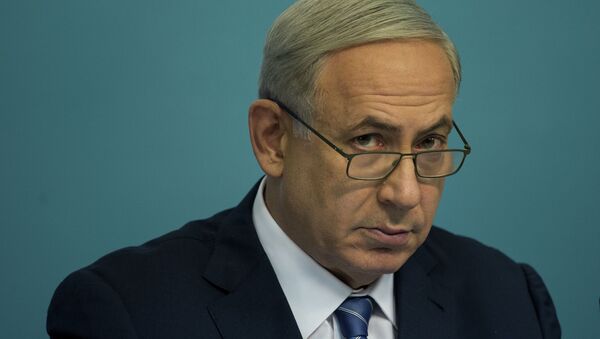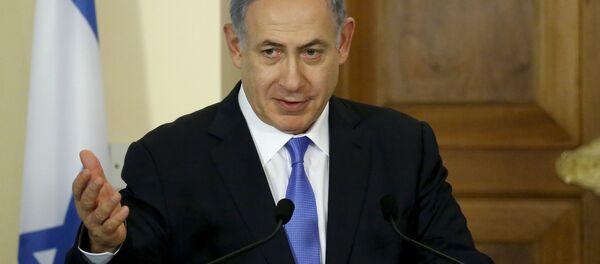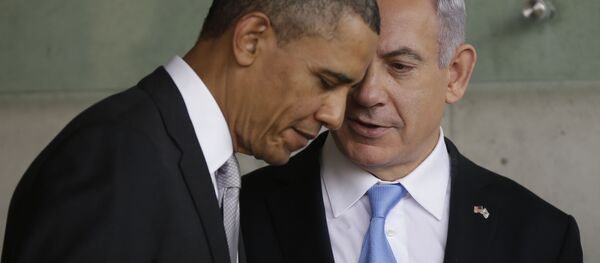In a meeting with US President Barack Obama on Monday in Washington, Netanyahu said "I remain committed to a vision of peace of two states for two peoples." He added that he wanted "make it clear that we have not given up our hope," for achieving a two-state solution to the conflict.
As Hussain points out in an article published by the Intercept, the Israeli government just the day before Netanyahu's comments – and despite Palestinian opposition – moved to authorize the construction of an additional 2,200 housing units in the occupied territories.
Just before a surprisingly close Israeli election earlier this year, when it appeared that he could possibly be ousted from office, Netanyahu declared that no Palestinian state would be established if he was returned to office. (He later backtracked from those remarks.)
Hussain wonders why despite Netanyahu's election comments – and a handful of others – the idea that the prime minister supports a two-state solution persists in the United States.
In his 2000 book, "A Durable Peace," Netanyahu wrote: "Many in the world have blithely accepted the notion that the Palestinians must have their own independent state. When I am asked about a Palestinian state, I answer in the negative."
Instead of statehood, Netanyahu proposed the creation of a "Palestinian entity," a governing body with some rights of limited self-governance but not full independence, Hussain noted.
In a video recorded the next year, Netanyahu said that during his first term as prime minister (1996 to 1999) he had "de facto put an end to the Oslo Accords," the agreement negotiated with Palestine by his predecessor and which intended to create a Palestinian state.
However, Hussain points out, American pressure for a two-state solution started to build when Obama entered the White House in 2009. That year, Obama have a speech in Cairo in which he said the United States "does not accept the legitimacy of continued Israeli settlements."
Days later, Netanyahu gave a speech at Bar-Ilan University near Tel-Aviv, endorsing for the first time what he called "a demilitarized Palestinian state" in the occupied territories. But the same speech added stipulations that, according to Hussain, turned the so-called state into a rebranded version of Netanyahu's 2000 "Palestinian entity," with only limited autonomy.
In the run-up to the 2015 election, when he pledged against Palestinian statehood, Netanyahu repudiated his 2009 Bar-Ilan speech, saying "there will be no withdrawals and no concessions," and that the speech was "not relevant."
As recently as last week, Netanyahu told the Knesset Foreign Affairs and Defense Committee that "we need to control all of the territory for the foreseeable future," before adding that Israel "will forever live by the sword."
Hussain writes: "In light of all this it's difficult to take seriously Netanyahu's most recent claim that he supports the creation of a Palestinian state."






